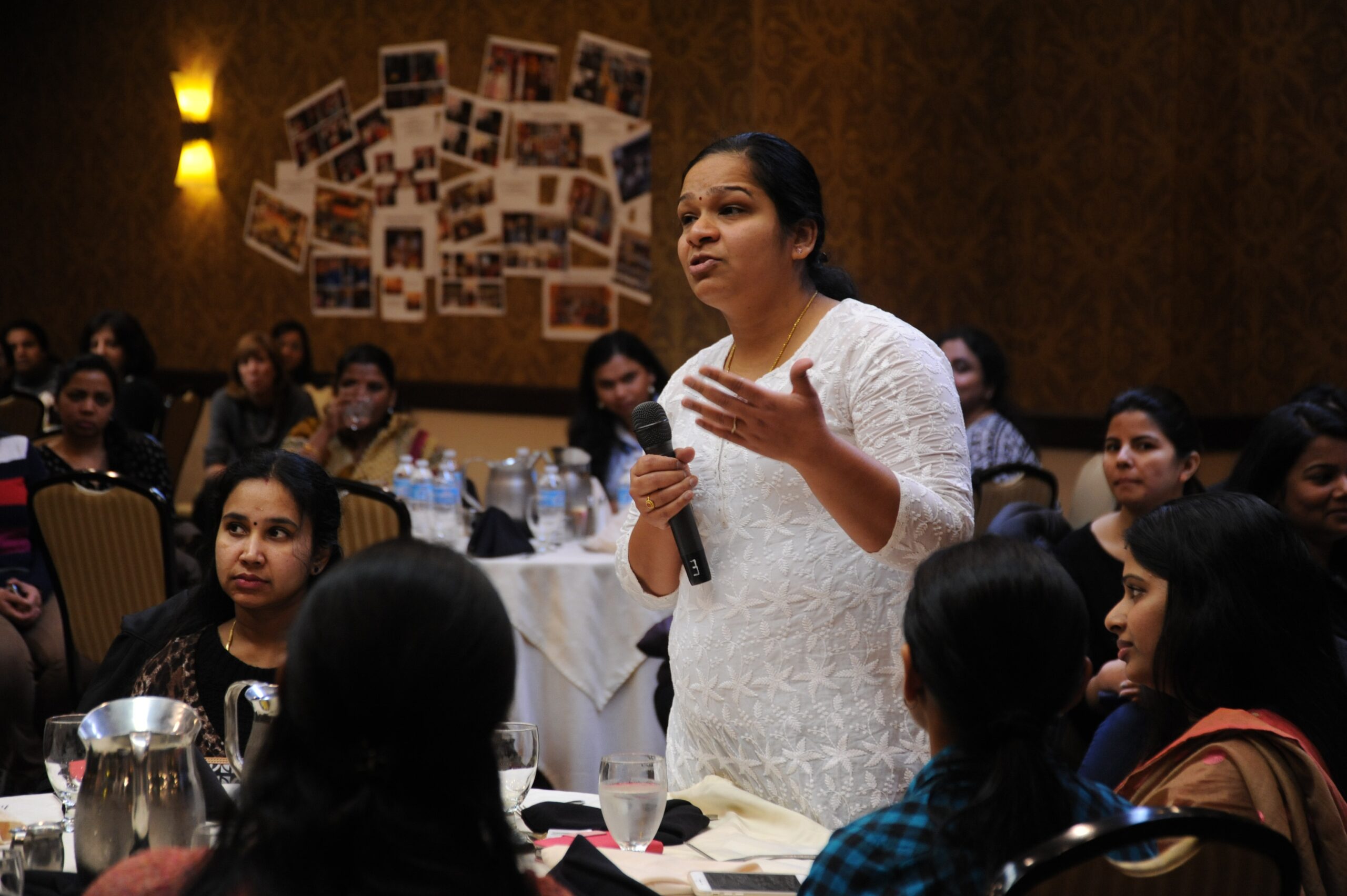Introduction
In the journey from introvert to extrovert, many find themselves at a crossroads, pondering the leap towards a more outspoken version of themselves. It’s a transition that can seem daunting, yet it’s increasingly common and, indeed, possible. The first steps on this path often involve recognizing when one’s natural inclination to listen eclipses the ability to speak up. This article explores that delicate balance and how to gracefully navigate moments of uncertainty. It’s for those who believe in change and seek the confidence to express themselves fluently, even when words are hard to find. Join us as we delve into the art of eloquence, with practical advice and strategies that promise to reshape not just how one speaks, but also how one thinks about communication. introvert to extrovert transition

Introduction to Eloquence: The Power of Saying the Right Thing
Before diving into the intricacies of eloquence, it’s worth pausing to consider where you stand on the spectrum of communication. Are your thoughts often clearer in your head than when spoken? Do you find yourself rehearsing dialogues internally, only to remain quiet in conversation? If these scenarios sound familiar, taking an introvert test can be an enlightening first step. It’s a way to understand your baseline – to get to grips with your natural conversational style before embarking on the journey to articulate self-expression.
The test isn’t a judgment but a starting point. It gauges your current comfort level in social interactions and identifies the specific challenges you might face in finding the right words. Armed with this knowledge, you can tailor your path to eloquence to your personal needs, ensuring you’re not just mimicking extroversion, but enhancing your communication skills in a way that feels authentic to you.
For introverts, the power of saying the right thing isn’t about transforming into a relentless chatterbox; it’s about finding a voice that resonates with clarity and confidence. It’s about crafting sentences that carry weight, learning to harness the pause, and engaging with others in a manner that feels both comfortable and impactful.
Remember, eloquence is not the sole domain of those who speak without effort. It can be learned, refined, and mastered with time and practice. By understanding your introverted nature and how it shapes your communication, you can begin to unlock the potential of your voice. This isn’t about a complete personality overhaul but enhancing your inherent qualities. So, take that test, note your starting line, and prepare to embark on a transformative journey that could change not just how you talk, but how you connect with the world around you.

Understanding Silence: When No Words Seem Adequate
Once you’ve pinpointed where you stand with the help of an introvert test, the next phase is understanding the silence that often accompanies introversion. Silence can be powerful, but knowing when and how to fill it is an art. If you’re seeking to share your thoughts more openly, consider joining our intro to extro community. It’s a place where like-minded individuals gather to discuss their experiences and challenges in finding their voice. Here, you can learn from others who are also on the path from introspection to articulation, gaining insights into the silent pauses that fill your day.
The community offers a judgment-free zone where you can express your hesitations and celebrate small victories. Members share strategies that have helped them step into conversations more boldly, offering practical tips and moral support. Whether it’s a group brainstorming session or one-on-one discussions, the community is a resource for bouncing ideas off peers who understand the nuance of introverted struggles.
In this shared space, you’ll discover that your silence isn’t a weakness but a canvas awaiting your words. It’s a collective acknowledgment that while silence can be comfortable, choosing to speak can be empowering. The community doesn’t push you to become someone you’re not; instead, it encourages you to expand your comfort zone at your own pace.
Dialogue within this supportive network can also help demystify the moments when you find yourself at a loss for words. You’ll learn to navigate these instances not with anxiety, but with a sense of preparedness and a toolkit of responses. With each shared story and exchanged piece of advice, you’re not only contributing to your growth but also to the collective wisdom that makes our community thrive. So, take a step towards turning silence into eloquence and join a group of peers who are eager to listen, share, and grow together.

Learning from Great Speakers: How They Handle Being Speechless
With a foundation of self-understanding and community support, it’s time to observe and learn from those who excel in the very skill you’re cultivating. The third step in your journey is to examine how great speakers manage moments of speechlessness. This exploration is part of our unique intro to extro roadmap, a guide that is distinctly different from others. It doesn’t just offer generic advice but provides a customized strategy for introverts to become more expressive.
Great speakers, even those who seem naturally gifted, experience moments when words escape them. The roadmap encourages studying how these individuals navigate such instances. They might use a strategic pause, a thoughtful gesture, or a well-timed joke to regain their composure and the audience’s attention. They understand that communication is as much about recovery as it is about preparation.
The guide also points out that these speakers often have a mental repository of anecdotes, statistics, and fallback topics they can tap into when caught off-guard. This technique ensures that they can steer the conversation or presentation back on track with minimal disruption. The roadmap suggests building your repository, filled with topics you’re passionate about and facts you’re confident in discussing.
Furthermore, it emphasizes the importance of practice. Great speakers rehearse not just their content but also their responses to potential surprises or challenging questions. Through role-playing exercises and mental simulations, they prepare for various scenarios, which equips them to handle real-life situations with greater ease.
By following this roadmap, you’ll not only learn to speak with more fluency, but you’ll also develop resilience and adaptability. It’s about enhancing your ability to think on your feet and convey your thoughts with clarity, even under pressure. So, draw inspiration from accomplished communicators, adopt their strategies, and add your unique twist. With time and practice, you’ll not only find your words but also the eloquence to deliver them effectively.

Vocabulary Building: Expanding Your Arsenal of Words
Embarking further on the eloquence journey, it’s essential to recognize that the richness of one’s vocabulary can significantly bolster confidence in expression. This is where the art of vocabulary building comes into play—expanding your arsenal of words, not to impress but to express more precisely and persuasively. It’s a deliberate expansion of your language palette to paint clearer pictures with your words, and it becomes a crucial step in refining your communicative prowess.
Vocabulary building is not about memorizing a dictionary; it’s about being curious and attentive to new words that capture emotions and ideas more vividly. It involves reading widely, from articles to novels, and noting down words that resonate. It’s also about listening—paying attention to how others articulate their thoughts and the phrases that make you pause and think. Then, practice incorporating these discoveries into your daily language.
This process enriches your verbal toolkit, enabling you to draw from a deeper well of language when you need to articulate complex feelings or thoughts. With a broader vocabulary, you can avoid the generic “I don’t know what to say” and instead find the right words that reflect your true intent. It also empowers you to engage in conversations on a wider range of topics, as you’re less likely to be deterred by a lack of terminology.
Moreover, a richer vocabulary can help dismantle the fear of public speaking. Knowing that you have the words to express yourself can provide a safety net that emboldens you to step into the spotlight. It’s the difference between fumbling for words and having them readily at your command.
In the pursuit of eloquence, remember that vocabulary is not a static tool but a growing asset. It evolves as you do, and as you continue to feed your curiosity and step out of your linguistic comfort zone, your capacity for expression will grow in tandem. So, dedicate yourself to the continuous cultivation of your vocabulary; it is an investment in your communicative future.
Practicing Improvisation to Enhance Spontaneous Eloquence
As you continue to arm yourself with a more robust vocabulary, the next stage is to translate these words into spontaneous, eloquent speech. This is where the practice of improvisation becomes invaluable. It’s not just for actors or comedians; it’s a skill that can enhance anyone’s ability to think and speak on their feet. Improvisation exercises encourage you to respond quickly to new information, think creatively, and express your thoughts coherently without prior planning.
For introverts, the mere thought of improvisation might initially stir discomfort, but it’s precisely this step out of the comfort zone that fosters growth in eloquence. Start small, perhaps with improvisational storytelling among friends, where the stakes are low and the environment is supportive. Or engage in solo exercises, like speaking on a random topic for a minute straight without stopping. These practices build mental agility and help reduce the anxiety associated with unscripted speaking.
Practicing improvisation also teaches you to trust your instincts. When a conversation takes an unexpected turn, you’ll be better equipped to flow with it, using the language tools you’ve been developing. You’ll learn to embrace the unpredictable nature of dialogue and even enjoy the thrill of coming up with ideas on the spot.
In group settings, such as the workplace or social events, the ability to improvise can lead to more dynamic interactions and a stronger presence. It can transform you from a passive listener to an active participant, someone who contributes ideas and drives conversations forward. Improvisation doesn’t mean speaking without filter; it’s about being able to access your thoughts and vocabulary swiftly and appropriately.
Embrace the art of improvisation as part of your journey to eloquence. It’s an empowering skill that not only enhances your communication but also reinforces your confidence. By becoming comfortable with improvisation, you’ll find that the phrase “I don’t know what to say” becomes a less frequent visitor in your conversations.
Turning to Quotes and Anecdotes When You’re at a Loss for Words
Moving forward in your journey, another powerful tool in the art of eloquence is the use of quotes and anecdotes. When you’re at a loss for words, these can serve as bridges, connecting your thoughts to speech, and providing a foundation when you find yourself teetering on the edge of silence. Quotes and anecdotes are effective because they allow you to draw on the wisdom and experiences of others, giving you a moment to collect your thoughts and continue the conversation with renewed confidence.
Integrating quotes into your dialogue doesn’t require encyclopedic memory; it’s about having a handful of go-to lines that are versatile and resonate with your personal philosophy. Similarly, anecdotes—short, relatable stories—can be a lifeline, illustrating your point with a touch of narrative flair. They make your communication more engaging and can often convey complex ideas with simplicity and impact.
For introverts, particularly, who may spend more time reflecting on past interactions, compiling a mental or physical notebook of quotes and memorable stories can be immensely beneficial. This preparation ensures that even when spontaneous words seem elusive, you have a well of resources to tap into. A relevant quote can provide a springboard for further discussion, while a well-chosen anecdote can break the ice and foster a connection with your audience, whether in a one-on-one setting or before a larger group.
The key is to choose quotes and stories that truly speak to you, so that when you share them, they come across as authentic and heartfelt. They should be natural extensions of your conversation, not forced interjections. With practice, you’ll learn to weave these elements into your conversations seamlessly, allowing you not only to fill gaps in dialogue but to enrich the discussion and leave a lasting impression.
By mastering the use of quotes and anecdotes, you empower yourself to overcome moments of speechlessness with grace and authority. They become tools in your eloquence arsenal, ready to assist you in crafting memorable and meaningful communication.
Growing Your Eloquence for Future Conversations
The culmination of your journey to eloquence lies not just in the mastery of speaking, but in the continuous growth of your communicative abilities. Every conversation, every speech, and every interaction is an opportunity to refine your art. Growing your eloquence is an ongoing process, one that involves persistent learning, self-reflection, and adaptation. It’s about embracing a mindset that views each moment of speechlessness not as a setback, but as a chance to learn and evolve.
This mindset is crucial, especially for introverts who are often their own harshest critics. Remember, the path to eloquence is as much about accepting imperfections as it is about celebrating progress. It’s about recognizing that every time you find the courage to speak, you’re taking a step forward. It’s also about understanding that eloquence isn’t a static state but a skill that flourishes with practice and patience.
As you move forward, keep seeking out new experiences that challenge your communicative skills. Engage in discussions on topics outside your comfort zone, join public speaking groups, or simply strike up conversations with strangers. Each of these experiences will contribute to your growth, providing practical insights into the nuances of effective communication.
Moreover, sharing your journey with others can be immensely powerful. It not only reinforces your own learning but can also inspire and guide fellow introverts on their path to eloquence. By being open about your challenges and successes, you contribute to a culture of growth and learning.
Ultimately, eloquence is about finding your voice and using it in a way that’s true to yourself. It’s a tool that allows you to express your thoughts, influence others, and navigate the world with confidence. So, continue to cultivate it, cherish the journey, and watch as your ability to articulate the thoughts and feelings that once seemed elusive becomes second nature.
Conclusion
In the quest for eloquence, the true victory lies in the journey itself—the moments of self-discovery, the courage to speak, and the joy of connecting with others through words. Whether you’re an introvert yearning to express yourself more freely or simply seeking to enhance your communication skills, remember that eloquence is within reach. It’s not about a grand transformation but about embracing the incremental changes that lead to greater clarity, confidence, and connection.
As you reflect on the strategies outlined in this article—from recognizing your conversational starting point to embracing the power of improvisation and anecdotes—consider them as signposts on your path to eloquence. They are not just techniques but invitations to explore the depth of your thoughts and the breadth of your expressiveness.
The art of eloquence is not reserved for the few; it’s a skill that can be cultivated by anyone willing to invest the time and effort. So, take these insights, apply them to your conversations, and let your voice be heard. Remember, every word spoken is a step towards becoming the articulate, confident speaker you aspire to be. Embrace the process, and let your journey from silence to eloquence be one that inspires, transforms, and ultimately, defines you.




